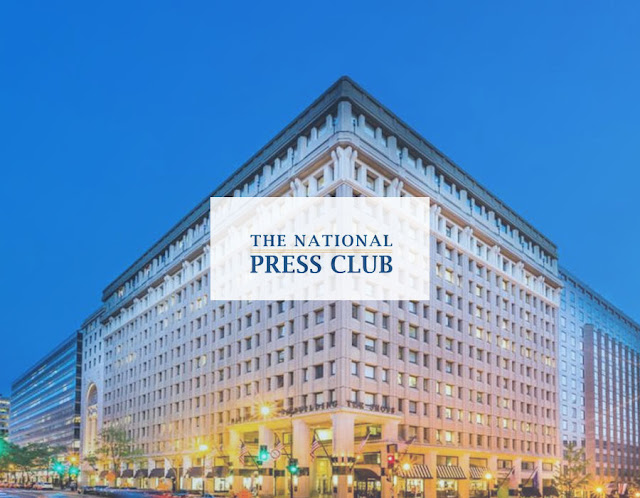The National Press Club criticizes new Pentagon rules restricting press access, warning the changes threaten transparency and democratic accountability.
 |
| Press Club warns Pentagon’s new rules restricting press movement and access could severely erode public trust and journalistic oversight. Image: CH |
Washington, USA – May 23, 2025:
The National Press Club has issued a strong rebuke of new media restrictions introduced by the U.S. Department of Defense, warning that the policy severely undermines transparency, impedes journalistic access, and weakens democratic accountability.
In a formal statement released Thursday, National Press Club President Mike Balsamo voiced deep concern over a new Pentagon directive that significantly limits journalists’ freedom of movement within the building and requires reporters to be escorted—even for routine access to previously open areas. The policy also reduces opportunities for spontaneous engagement with defense officials, further constraining the media’s ability to conduct timely and effective reporting.
“The Department of Defense has taken a significant step to restrict long-standing press access to the Pentagon,” Balsamo said. “A new directive sharply limits where journalists can go, requires escorts for routine movement, and curtails opportunities to engage with officials. These changes raise serious concerns about transparency, oversight, and the public's right to know.”
For decades, reporters covering the Pentagon have enjoyed an informal yet vital access framework, enabling them to navigate hallways, attend briefings, and ask direct questions to officials in real-time. This access has played a key role in maintaining public awareness and providing vital scrutiny over one of the most powerful institutions in government. The new restrictions, press advocates say, represent a fundamental shift in that relationship.
“Independent, fact-based reporting on the U.S. military isn't a luxury. It is a necessity,” Balsamo emphasized. “It keeps voters informed, strengthens democratic oversight, and sends a clear message to the world that America stands for openness and accountability. Restricting access doesn't protect national security. It undermines public trust.”
The Pentagon’s revised policy reportedly prohibits journalists from freely entering common areas where informal interactions previously occurred. Access is now contingent on being escorted by public affairs personnel, who also serve as gatekeepers for interviews and movement within the complex. This, according to critics, significantly slows down reporting and impairs the press’s ability to respond to breaking news or investigate emerging developments.
The Press Club’s concerns echo those of the Pentagon Press Association (PPA), a coalition of defense reporters and correspondents with years of experience covering the military. The PPA has also called for the immediate reversal of the policy, arguing it threatens the very core of transparency that has traditionally defined U.S. press-military relations.
“The updated policy marks a stark departure from long-standing norms that balanced operational security with meaningful press access,” Balsamo said. “By blocking access to common areas, restricting movement without escorts, and complicating basic reporting functions, the Pentagon is making it harder for journalists to do their jobs and easier for power to go unchecked.”
The Press Club is urging Defense Department leaders to reconsider the directive and reestablish a more open and collaborative environment with the media. “We stand with the Pentagon Press Association in urging a swift reversal of this policy,” the statement continued. “The Pentagon should be working with reporters, not placing obstacles in their path.”
At stake, the Club notes, is not merely journalistic convenience but the very principle of public oversight. “The public has a right to know what its military is doing,” Balsamo concluded. “Journalists who cover national defense must be free to do their jobs without escorts, unnecessary restrictions, or barriers to truth.”
Founded in 1908, the National Press Club remains the world’s leading professional organization for journalists, representing nearly 3,000 members from major news organizations worldwide. Headquartered in Washington, D.C., the Club serves as both a forum for global newsmakers and a tireless advocate for press freedom through its Press Freedom Center.
As tensions grow between government institutions and the free press, the Club's statement serves as a stark reminder of the vital role independent journalism plays in upholding democratic norms and ensuring government accountability.